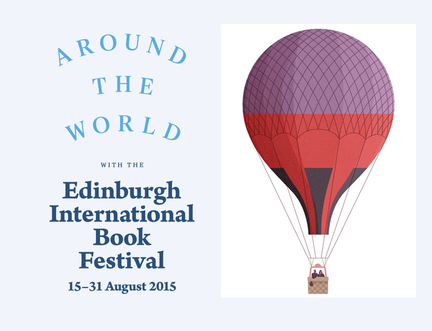More articles Monday 31 August 2015 7:30pm
Alex Salmond reopens debate over BBC

Alex Salmond reopened the debate over the BBC’s role in the independence referendum in his Book Festival event today when he said he was caught by surprise by what he claims was its biased coverage during the campaign last year. Admitting that not anticipating this had been “a blind spot” on his part, the former First Minister said that the BBC had not been “fair and square” in its reporting.
He also returned to the ongoing spat with the departing BBC political editor Nick Robinson, describing him as “just an instrument” of “a larger underlying issue”. The MP made his comments while hosting an audience with the Channel 4 economics editor Paul Mason at the Book Festival earlier last week.
He had been asked for his reaction to the way he thought UK Government institutions and companies had responded during the referendum. “The Treasury didn't surprise me, the chief executives of a number of companies didn't surprise me in the slightest, but the BBC did surprise me,” he said. “That's because my experience of elections, and again in the election that was held this year, is that no doubt politicians complain about this and complain about that, but by and large on the whole television coverage in this country is pretty fair and square. It wasn't like that during the referendum and that was a blind spot that I didn't see, but should have seen.”
Citing an example of its bias, Salmond referred to the BBC’s handling of his accusation that the Treasury had leaked sensitive information about Royal Bank of Scotland’s (RBS) plans to leave the country in the event of a Yes vote. He said that pressure had been placed on Scottish banks by the Treasury, describing how an email had been sent out on 10 September by a Treasury official to the BBC, suggesting that RBS was going to move its HQ to London in the event of a Yes vote. Salmond pointed out that the problem with the email was that it had been sent 25 minutes before the bank’s board meeting had made its decision and had concluded “not to base itself London but to change, if necessary, its registered office, which are two entirely different things.”
He said: “When it was suggested, as I had suggested, that the Treasury had leaked the information about the Royal Bank of Scotland, I expected BBC journalists to be pour in to the Treasury and find out the truth, as opposed to repeating the line [from the Treasury].”
Using a reference to James Bond villains to describe the Treasury Permanent Secretary Sir Nicholas Macpherson's role in the camp, Salmond added: "Establishing who the people stroking the black cats were, we should get the right targets, and for me Nicholas Macpherson has the cat."
His comments come after Robinson, and Today programme presenter James Naughtie, used appearances at the Book Festival to criticise both Salmond and the independence campaign. Robinson had likened a mass protest outside the BBC Scotland headquarters during the referendum, over his reporting of a Salmond press conference, as being like something out Putin’s Russia; while Naughtie had said that the MP’s continued criticism of the broadcaster and the BBC was “weird” and “bizarre”.
Responding, to Robinson’s comments, Salmond said during the event that they were “having a dialogue”, but added that "It's a much bigger issue” than the broadcaster alone. “He was just the instrument on the day, as it where, rather than the underlying issue.”
Mason, who was at the Book Festival to discuss his new book Has Capitalism Had Its Day? said that at the time of the RBS controversy, he had been surprised by the BBC’s coverage. The former BBC Newsnight economics editor put forth the theory about the BBC that “most of what people don't like about it is to do with the social group its managers and senior people are recruited from. I don't even mean politics, it's an outlook on life.”
Mason said that they would "almost always be Unionist” and hold a “neo-liberal point of view". He said that in the end the nature of any perceived bias came from a combination of "recruitment plus cock-up, rather than conspiracy". The broadcaster added, however, he was convinced that the BBC was Unionist "in its DNA", because its existence was dependent on the UK.
Mason also said that if Scotland was to become independent, it should not adopt a state broadcasting system. He explained: "You don't want a state broadcaster. You don't want to replace one quasi-state broadcaster with a state one. You want the most diverse media.”

 Full 2025 Book Festival programme is announced with key theme of Repair
Full 2025 Book Festival programme is announced with key theme of Repair 

